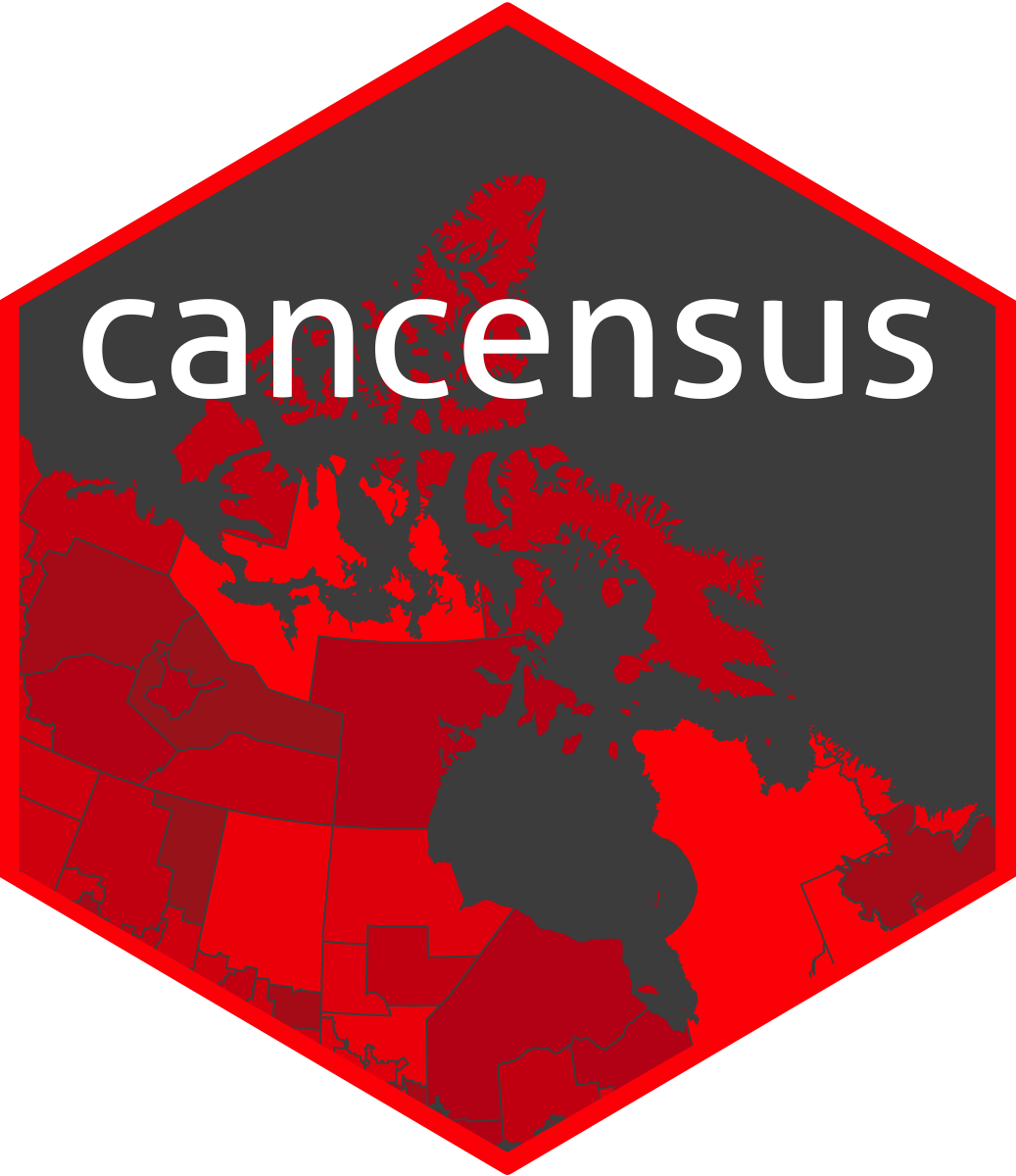Code
install.packages("cancensus")
cancensus::set_api_key(key = "CensusMapper_XXXX...XXXX", install=TRUE)
The cancensus R package (von Bergmann, Shkolnik, and Jacobs 2022) interfaces with the CensusMapper API server. It can be queried for
census geographies for census years 1996 through 2021
census profile data for census years 1996 through 2021
some census custom tabulations
hierarchical metadata of census variables
some non-census data that comes on census geographies, e.g. T1FF taxfiler data
A slight complication, the cancensus package needs an API key. You can sign up for one for free on CensusMapper.
Once you have your API key it’s useful to store it as an environment variable in your .Renviron configuration file so it’s available in all your R sessions.
install.packages("cancensus")
cancensus::set_api_key(key = "CensusMapper_XXXX...XXXX", install=TRUE)By default {cancensus} caches downloaded census data, which makes it easier and faster to re-run analysis and protects from overusing the CensusMapper API quota. To use caching a local path needs to be designated for data caching. The cache is shared across R sessions.
cancensus::set_cache_path(cache_path = "<local path of cache data>", install=TRUE){cancensus} provides convenient access to census data. Calls to {cancensus} require to spectify
The dataset, for example “CA21” for the 2021 Canadian census. A list of available datasets can be accessed via cancensus::list_census_datasets().
The regions to access the data for, this is a list keyed by geographic levels. For example, to access data for the Vancouver census metropolitan area it would be list(CMA="59933"), for the City of Toronto it would be list(CSD="3520005"). Region parameters can contain several regions of the same type or mix regions of different type. For example, to access data for the region covered by the Vancouver School Board, we need to assemble two CSDs and three CTs list(CSD=c("5915022","5915803"),CT=c("9330069.04","9330069.03","9330069.02")). This allows pinpointing what geographic region we are interested in.
The geographic level to query the data for. This simply are the regions specified in the regions parameter, but it could also be any geographic level equal to or lower than the lowest level geographic region specified in the regions parameter. Valid level identifiers are DB for dissemination blocks, DA for dissemination areas, EA for enumeration areas for the 1996 census, CT for census tracts, CSD for census subdivisions, CMA for census metropolitan areas or census agglormerations, CD for census districts, PR for provinces or territories and C for country level data. Geographic regions can also be assembled using the CensusMapper API GUI tool, CSD and higher level geographies can be explored or searched programmatically via the list_census_regions() or search_census_regions() functions.
The vectors parameter allows to specify which census variables to query. By default the data comes with population, dwelling and household counts, other census variables can be explored and selected via the CensusMapper API GUI tool or explored or searched programmatically via the list_census_vectors() or find_census_vectors() functions. There are also helper functions to select variables using the internal CensusMapper metadata and hierarchy of census variables via the child_census_vectors() function. For finer control over the names of the returned census variable the vectors parameter can be a named vector.
The geo_format parameters allows to select if geographic data should also be downloaded, and if yes, in what format. In this post we will only access data via the modern “sf” format, but data can also be accessed in the legacy “sp” spatial data format.
As an example we will retrieve the share of the population in Toronto, Mississauga, and Brampton spending 30% or more of income on shelter costs in 2016.
library(cancensus)
library(dplyr)
regions <- list(CSD=c("3520005","3521005","3521010"))
vectors <- c(shelter_cost_burdened="v_CA16_4889", shelter_base = "v_CA16_4886")
data <- get_census(dataset = "CA16", regions=regions, vectors=vectors)
data %>%
mutate(`Share shelter cost burdened`=shelter_cost_burdened/shelter_base) |>
select(GeoUID,`Region Name`,`Share shelter cost burdened`)# A tibble: 3 × 3
GeoUID `Region Name` `Share shelter cost burdened`
<chr> <fct> <dbl>
1 3520005 Toronto (C) 0.296
2 3521005 Mississauga (CY) 0.264
3 3521010 Brampton (CY) 0.305